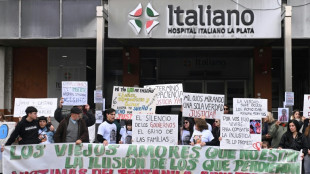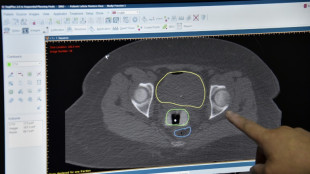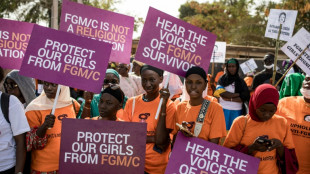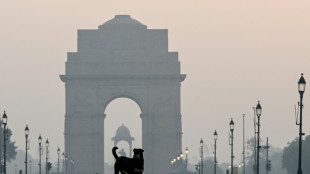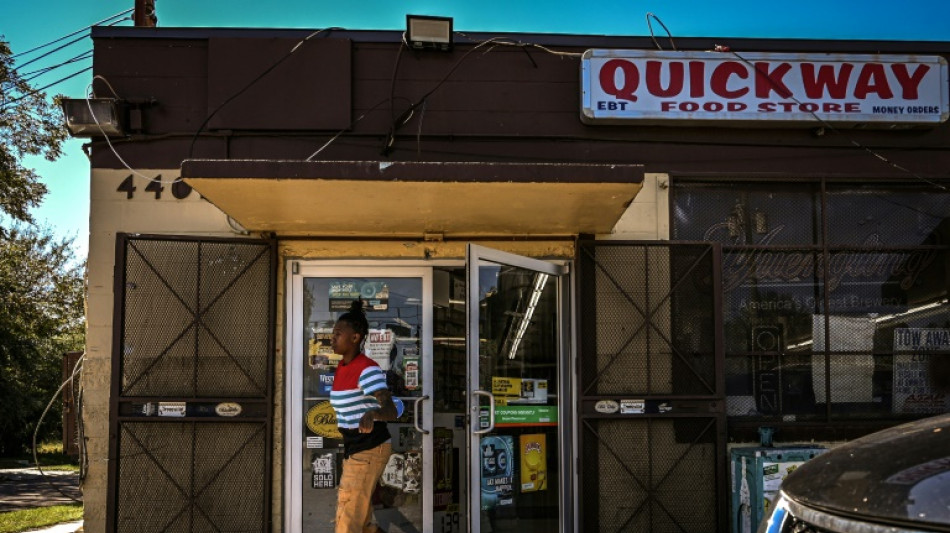
-
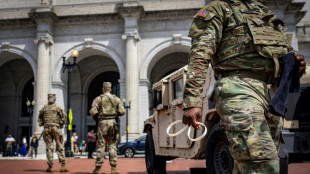 'Ridiculous': How Washington residents view the new troops in town
'Ridiculous': How Washington residents view the new troops in town
-
Global plastic pollution treaty talks extended in 'haze' of confusion

-
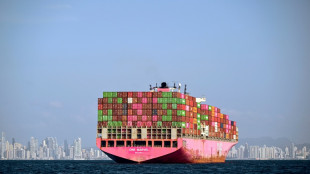 Trump's tariffs have not reduced Panama Canal traffic -- yet
Trump's tariffs have not reduced Panama Canal traffic -- yet
-
YouTube turns to AI to spot children posing as adults

-
 Sky's the limit for Duplantis ahead of 'super-sick' Tokyo worlds
Sky's the limit for Duplantis ahead of 'super-sick' Tokyo worlds
-
New clashes in Serbia as political crisis escalates

-
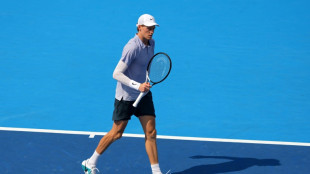 Sinner swamps Auger-Aliassime in Cincinnati power display
Sinner swamps Auger-Aliassime in Cincinnati power display
-
California to change election maps to counter Texas, governor says
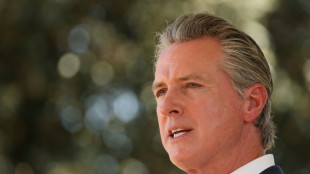
-
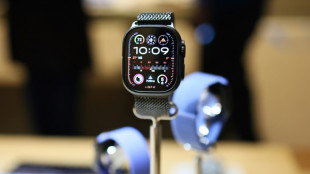 Apple Watch gets revamped blood oxygen feature
Apple Watch gets revamped blood oxygen feature
-
Trump vows not to be intimidated ahead of Putin summit
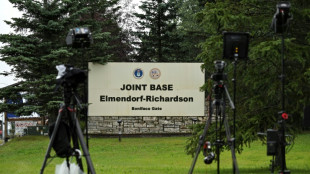
-
 Dueling interests for Trump and Putin at Alaska summit
Dueling interests for Trump and Putin at Alaska summit
-
Global plastic pollution treaty talks in a 'haze'

-
 Bristol sign Wales wing Rees-Zammit after NFL dream ends
Bristol sign Wales wing Rees-Zammit after NFL dream ends
-
Gauff cruises into Cincinnati quarter-final with Paolini

-
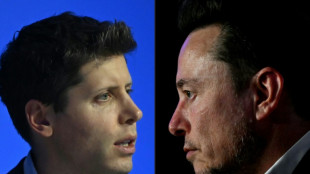 Apple rejects Musk claim of App Store bias
Apple rejects Musk claim of App Store bias
-
Searchers seek missing after deadly Italy migrant shipwreck
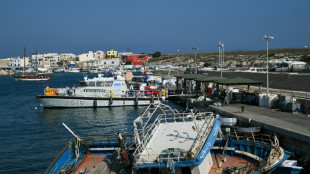
-
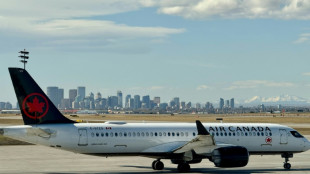 Air Canada cancels flights over strike threat
Air Canada cancels flights over strike threat
-
Trump turns history on head with Putin invitation to key US base
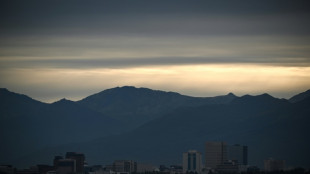
-
 Gauff dominates Bronzetti to reach Cincinnati last eight
Gauff dominates Bronzetti to reach Cincinnati last eight
-
UN warns Russia, Israel of conflict sex crimes listing risk
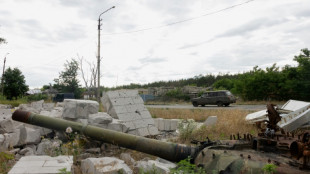
-
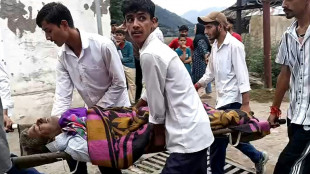 Flood kills 46 in Indian Kashmir mountain village
Flood kills 46 in Indian Kashmir mountain village
-
Germany sacks rail chief with train network in crisis

-
 Trump says Putin summit could fail, promises Ukraine say
Trump says Putin summit could fail, promises Ukraine say
-
Lyles v Thompson in re-run of Olympic 100m final in Silesia

-
 LA 2028 to sell venue name rights in Olympic first
LA 2028 to sell venue name rights in Olympic first
-
Solomon Islands says China not influencing diplomatic decisions
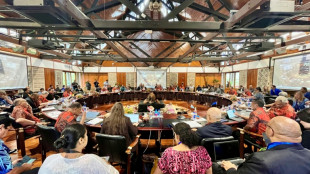
-
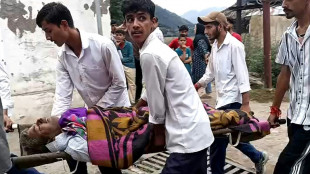 Flood kills 37 in Indian Kashmir mountain village
Flood kills 37 in Indian Kashmir mountain village
-
US stocks drop as producer inflation surges
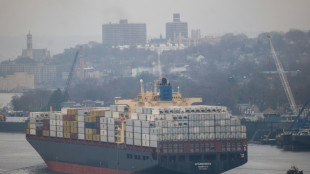
-
 Greenpeace stages Anish Kapoor art protest on UK gas platform
Greenpeace stages Anish Kapoor art protest on UK gas platform
-
US producer inflation highest in three years in July
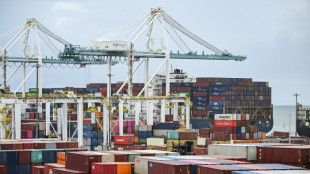
-
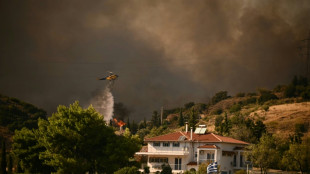 Greek firefighters beat back wildfires
Greek firefighters beat back wildfires
-
Serbia's political crisis escalates into clashes
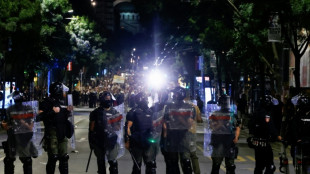
-
 Australia recall O'Connor to face champions South Africa
Australia recall O'Connor to face champions South Africa
-
Kremlin says Putin, Trump to hold 'one-on-one' talks in Alaska

-
 Stocks diverge as bitcoin hits record high
Stocks diverge as bitcoin hits record high
-
Spain suffers third wildfire death, Greece beats back flames
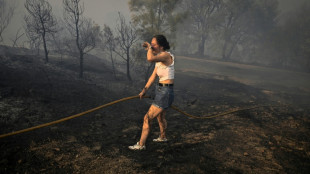
-
 Liverpool 'agree deal' for Parma prospect Leoni
Liverpool 'agree deal' for Parma prospect Leoni
-
Foreign NGOs say new Israeli rules keep them from delivering Gaza aid
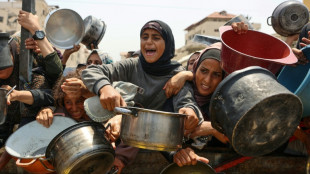
-
 Japan's grand tea master Sen Genshitsu dies at 102: reports
Japan's grand tea master Sen Genshitsu dies at 102: reports
-
Water shortages plague Beirut as low rainfall compounds woes
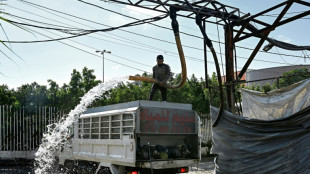
-
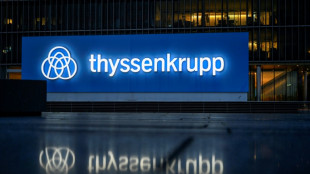 Germany's Thyssenkrupp cuts targets as US tariffs weigh
Germany's Thyssenkrupp cuts targets as US tariffs weigh
-
Brady didn't understand football, says Rooney after 'work ethic' jibe

-
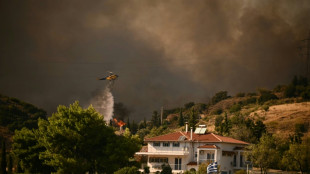 Greek firefighters make progress against wildfires
Greek firefighters make progress against wildfires
-
UK economy slows less than feared after tariffs
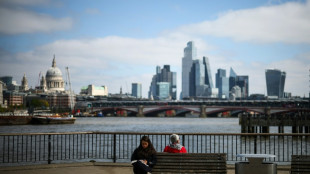
-
 Markets mixed as bitcoin hits new high
Markets mixed as bitcoin hits new high
-
PSG begin French title defence as Pogba returns home and Paris FC step up
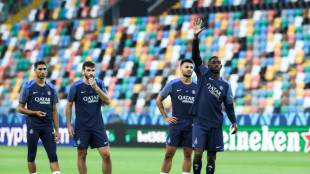
-
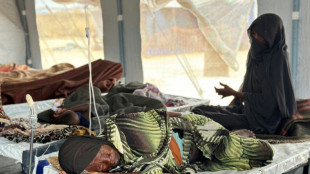 At least 40 dead in Sudan's worst cholera outbreak in years: MSF
At least 40 dead in Sudan's worst cholera outbreak in years: MSF
-
Zelensky in London to meet PM ahead of US-Russia summit

-
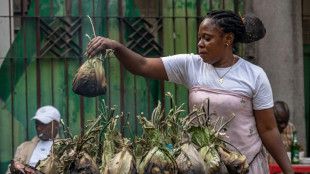 French dictionary gets bad rap over Congolese banana leaf dish
French dictionary gets bad rap over Congolese banana leaf dish
-
Alaska: a source of Russian imperial nostalgia
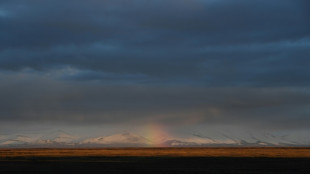

In a Florida 'food desert,' a gnawing sense of being left behind
Sitting outside her modest home in Jacksonville, Florida, on a street lined with nondescript buildings in faded shades of blue, a weary Brenda Jenkins expresses a simple wish: to be able to buy fresh fruit and produce in her own neighborhood.
It sounds simple enough. But for people like her, one of the 39 million Americans living in "food deserts" -- most of them low-income urban dwellers, and predominantly people of color -- fresh food is practically inaccessible.
In a country with often poor mass transit and persistent pockets of poverty, getting to grocery stores that sell fresh food can be daunting.
"It's very tiring," said the 26-year-old Jenkins, a mother of three.
The phrase "food desert" is misleading. The problem is not so much that fresh food is unavailable, as that it can be hard to get to, in a country where the car is king -- but also expensive.
There are no supermarkets in Jenkins' nearly all-Black neighborhood in the large city of Jacksonville on Florida's northern Atlantic coast.
Service stations, fast food restaurants and mom-and-pop groceries provide the only nearby food options.
Their shelves bulge with candy, chips, soda and cookies. But the only fresh products are likely to be a few wan-looking apples or bruised bananas near the cash register.
Yet the poorest residents have no other option. The city's mass transit system is skeletal. And the nearest supermarket is nearly an hour's walk away.
Jenkins has a car, and she often takes neighbors with her when she goes shopping.
But "what if I decided to move or what if I had something to do?" she asked. "How can they get groceries?"
And when her car breaks down -- a not-infrequent occurrence -- she has had no choice but to buy "processed foods" from a corner grocery -- "and it's just not healthy, especially with children."
With US midterm elections just weeks away -- and the prospect of major change in the Congress -- Jenkins complained that she has seen no candidates in her neighborhood, and received no campaign leaflets.
She thinks politicians ignore her area "because we're considered low-income."
If the authorities really cared, she said, "something would have been done" to address the food desert problem.
- 'A human right' -
The once-prosperous neighborhood has progressively fallen on hard times over the decades, making it less and less profitable for the big supermarket chains.
When the last one closed, "people lost access to healthy food," said Mika Hardison-Carr, a Black woman who manages a collective garden called White Harvest Farms.
Over time, local residents simply got used to living in a food desert and getting by on "processed food, canned food (and) noodles," said Hardison-Carr, holding a freshly picked kumquat.
"It is absolutely hard to change people's way of life," she said.
So the challenge now, Hardison-Carr added, is not just to give people access to fresh foods but to teach them to again make those foods a part of their daily diet.
Limited food options and poor eating habits are "contributing to all of these health issues that's causing us to die earlier, to be sicker, to be fatter," she said.
And she is adamant about this: "Access to fresh, healthy food should be a human right."
Her urban farm, created by the Clara White Mission with the help of public funds, provides free produce to the volunteers who help with the garden, and a low-price option to others in the neighborhood, who can pay with the federal food stamps that so many rely on.
On this autumn day, with Florida's normally stifling heat beginning to turn balmy, people are at work in the garden, a rare patch of green in the neighborhood's gritty urban landscape.
To attract buyers, the farm's crops include vegetables -- like collard greens -- that are essential to Southern and African-American cooking.
"They've already been in here asking us when the greens are ready," 43-year-old volunteer Nicole Boone noted with a laugh, adding, "we just seeded them!"
She has been with the program since it began last year.
Nearby, Sarah Salvatore, another garden manager, is planting flowers to attract insects that will help avoid the need for pesticides.
"Food deserts are very easy to eliminate," she said, hunched over her plants.
"We have to elect people that are putting their energy towards solving these issues," Salvatore said, "because they're solvable -- they're just underfunded."
M.Ouellet--BTB

